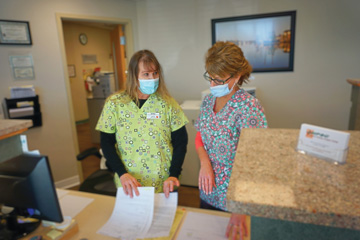When Robert Bray, MD, learned that DISC Sports and Spine Center in Newport Beach, Calif., achieved accreditation for the fifth consecutive year, he was already looking forward to the next one. The neurosurgeon and founder of DISC says the center uses the high mark of achievement as a benchmark for how to over perform until the next time his facility is surveyed. It’s also become a way DISC distinguishes itself professionally when it comes to both safety and quality patient care. “The focus of the survey is on quality and safety, allowing us to grow,” says Dr. Bray. “Accreditation keeps you on track to make sure you’re not only meeting but exceeding protocols that change constantly.”
To date, DISC’s ambulatory surgery center serves as an operating hub for more than 30 physicians specializing in neuro, spinal and orthopedic surgery. And while thousands of outpatient centers around the country are currently accredited, only a handful of high-level spine centers like DISC are included on the list. Though going through the accreditation process is completely voluntary, it bolsters an outpatient center’s reputation by being able to meet rigorous standards while demonstrating a commitment to high-quality patient care.
Dr. Bray believes accreditation helps attract patients who are very engaged with selecting both their doctors and surgery centers. “Over the years, patients have become much savvier in checking out the background of doctors and facilities,” he says. “Accreditation is something that is truly recognized as a national benchmark.”
Dr. Bray also points out the survey itself provides educational opportunities to improve best practices and meet guideposts for patient care and service. While not all surgical centers are always eager to welcome outside analysis, there are myriad ways to ensure that essential accreditation standards are met long before a surveyor steps through the front door.
.svg?sfvrsn=be606e78_3)

.svg?sfvrsn=56b2f850_5)